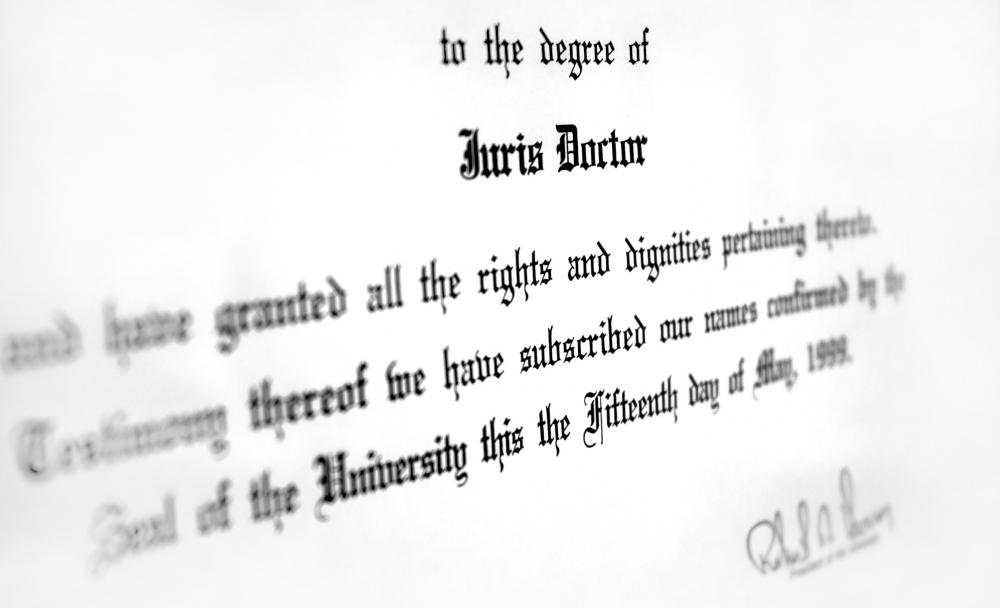At WiseGEEK, we're committed to delivering accurate, trustworthy information. Our expert-authored content is rigorously fact-checked and sourced from credible authorities. Discover how we uphold the highest standards in providing you with reliable knowledge.
How Do I Become a Tax Litigator?
Tax litigators are attorneys who specialize in negotiating outstanding tax debt settlements with government agencies. To become a tax litigator, a law degree is required. During the completion of the law degree, it is wise to take elective courses in national and local tax law. Knowledge and experience related to tax litigation as well as solid skills in negotiation are recommended for those who wish to become a tax litigator.
In the United States, a law or juris doctor (J.D.) degree is a graduate level program beyond an individual's first four years of college. Applicants usually have to receive an acceptable score on a standardized entrance exam, which is called the LSTAT®. The J.D. degree typically takes at least three years to complete and qualifies degree recipients to sit for the bar exam in their local area. Before they are allowed to practice, aspiring attorneys must pass the exam and become licensed.

Specialized knowledge and experience is beneficial for individuals who aspire to become a tax litigator. Educational courses and experiential learning related to tax laws and structure will help. It is important for tax litigators to comprehend not only the laws, but the managerial procedures involved in executing them. Knowledge of how government tax agencies and their different functions work, including the responsibilities and tasks of agency representatives, is vital.
It is extremely important for anyone wishing to become a tax litigator to understand the inner workings of government tax agencies because these are the people whom tax litigators work with on a daily basis. A tax litigator needs to understand who the decision makers are and what rules govern their potential behaviors. They also need to understand how the debt settlement and negotiation process works in legal courts in order to file the necessary paperwork, adhere to the government's requirements, and advise clients on the best possible solutions.
Individuals who wish to become a tax litigator may find it helpful to first work as an associate in law firms that specialize in tax negotiation. This experience will allow them to gain exposure to the legal system, the negotiation process and probable case types. Besides direct experience with the court system and government agency personnel, an aspiring litigator will also be able to begin establishing a network of professional contacts.
Tax litigators may work as partners or associates in established law firms or they may open up their own private practices. Some may also work for government tax agencies or as a public defender. Litigators can also choose to specialize in certain types of settlements, including income and payroll taxes.
AS FEATURED ON:
AS FEATURED ON:











Discuss this Article
Post your comments